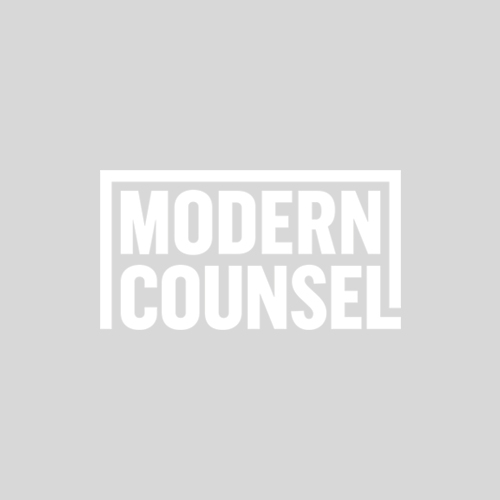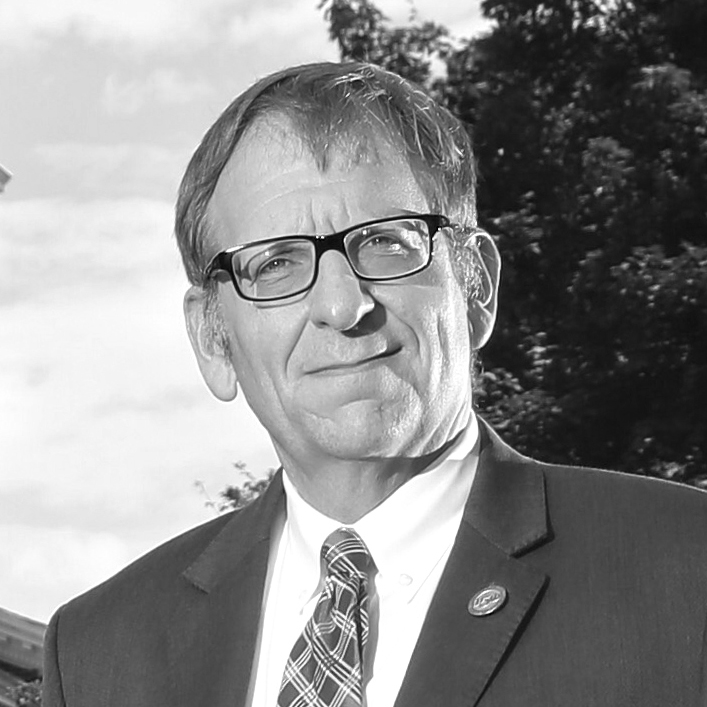Monsanto is one of the most well-known companies in the world and may also be one of the most controversial. By bringing together agriculture, science, big data, and advanced biotechnology, the company has not only produced significant innovations; it has encountered resistance from opponents who are against changing traditional farming methods or established agriculture business systems.
Balanced between the complexities of the company’s science, tech, controversies, and complex global markets is Dave Snively, executive vice president, secretary, and general counsel. After 31 years with the company, he’s grown accustomed to navigating global agribusiness and its maze of regulatory frameworks. And he doesn’t shy away from the hot-button issues that come with them.
He believes the reason Monsanto finds itself at the center of so many disputes is the public’s lack of knowledge about the company. In fact, aside from supporters and detractors at opposite ends of the spectrum, he says there is a much larger group in the middle that doesn’t understand what the company does. What is surprising is that he believes Monsanto bears some of the blame for those circumstances.
“For years, we were run by those who believed that science would be able to demonstrate how beneficial and safe our work and products are,” Snively says. “But as a lawyer, I know that perception is reality, and we need to explain our views so that people have a clearer picture of what we do and aren’t afraid of the innovations we develop.”
Until recently, Snively says, Monsanto was its own worst enemy. Opponents were defining it, and the company wasn’t communicating its own messages. Snively’s global legal team is part of the effort to create an objective understanding of the company’s presence and ethics. This includes participating in a three-day conference to discuss how public opinion impacts its decisions and influences what he calls the company’s societal permission to do business. “We have to earn our right to exist every day,” Snively says. “In addition to our scientific breakthroughs, we have to be more vocal about our sustainability efforts.”
“Just because we have legal standing to do something doesn’t mean we should do it.”
In addition to communicating its message more effectively, Snively says Monsanto has been doing a better job of listening. Snively points out that senior leadership spent the entire summer of 2013 holding private listening sessions with a variety of organizations, including nongovernmental organizations that had been critical of the company’s products and practices. This illustrates a more thoughtful approach to facilitating constructive exchanges with critics as well as supporters. “We want to hear what they have to say about us, and what they feel we need to do differently,” he says.
These efforts are beginning to show positive results, such as more supportive media coverage, but progress is made gradually. “It requires a coherent, coordinated, and long-term effort to turn a supertanker,” Snively says.
This includes work handled by the legal department. In Bowman v. Monsanto, a 2012 US Supreme Court case, the company won a unanimous decision that supported seed technology’s protection by existing intellectual property laws. Snively says that while the decision was a controversial one, it provides an opportunity to refute the perception that the company routinely sues farmers for saving seeds from one planting season to another without additional payment.
He points out that, though approximately 250,000 farmers use Monsanto seed technology annually, the company has brought only 156 lawsuits over a 20-year period. Of those, only 12 went to trial, with all settlements and judgments donated to charity.
“It would be an awful business model to be suing your customers,” Snively says. “We’re very selective about the cases we pursue, but they’re often based on reports from neighboring farmers who want to make sure that everyone is playing by the same rules. We go to great lengths to be certain we’re not overreaching. Just because we have legal standing to do something doesn’t mean we should do it.”
“We have to earn our right to exist every day.”
Recruiting and Preparing New Lawyers
The combination of Monsanto’s position in the public eye, the sophistication of its science and technology, and the complexity of its worldwide business create a legal portfolio that is somewhat staggering in its breadth and depth. For example, a small sample of the range of the legal department’s responsibilities includes managing intellectual property rights, understanding scientific processes and principles, and establishing appropriate foundations for global export of products. And that’s just the legal work. Snively estimates that it takes six months to a year for new hires to understand the matrix of internal groups and departments that is so complex it can’t be adequately displayed on a single organizational chart.
“There’s simply no law school that teaches the issues we handle—whether it’s developing a new system for paying for seed, like we’ve done in Brazil; the issues in the Bowman case; or working on matters that are part of developing a new breed of corn for a particular region in Africa,” Snively says, “there’s an immense amount of business, scientific, and legal information new lawyers have to absorb here.”
To develop the talent needed to manage all of these details, Snively has created an in-house training program for recent law school graduates. The program’s methodology is a detailed and methodical approach to immersing new hires in the company’s culture, networks, science, and the law in order to create from the ground up the type of attorneys Monsanto needs.
The program, which is in its early stages and is expected to require five years of training to complete, is modeled on Snively’s own experience, through which he benefited from the attention of “very patient” scientists and IP lawyers. The goal is to enlist a community approach in which senior staff, mentors, and managers are all accountable for new hires’ training, progress, and assessment of when they are ready to independently take on substantive assignments.
One of the precepts Snively stresses to new recruits and established staff lawyers alike is that the issues they handle are too complex to be managed alone. Teamwork is essential. This extends to Monsanto’s outside counsel.
Though the company actually works with hundreds of outside firms, 80 percent of its assignments go to approximately 20 firms that have the required sophistication, legal, and scientific expertise and institutional knowledge of Monsanto and its culture. Philip Perry, a partner at Latham & Watkins, leads of one of those outside teams.
“Dave manages perhaps the most complex and interesting portfolio I’ve seen in any company,” says Perry. “He does a terrific job of bringing in the right people and cutting straight to the core issues. He drives novel legal and business solutions when ‘simply ordinary’ just isn’t enough.” Perry previously served as the general counsel of two federal agencies and handles a wide range of biotechnology matters.
In addition to the challenge of global issues, the excitement of working with high-caliber inside and outside counsel is one of the things Snively enjoys most about his job. “We get to work on cutting-edge issues that no one has encountered before with some of the top lawyers in the world,” he says.
Moving Forward the Right Way
Snively is a highly ethical and religious person. He is chairman of the Catholic youth ministry Life Teen International, Inc., and a founding director of the Roman Catholic Foundation for Eastern Missouri. As he manages Monsanto’s legal issues, he places tremendous importance on acting ethically in carrying out all of the company’s responsibilities.
This commitment covers a range of activities that are spread around the globe: building schools and eliminating child labor in India, establishing legal and business systems in Brazil and sub-Saharan Africa, maintaining the company’s pledge to support human rights in its worldwide facilities, and ensuring the health and safety of all Monsanto’s products and its 23,000 employees.
A former litigator with a self-described binary perspective (“You either win or lose”), Snively’s underlying philosophy is that it’s essential “to do it the right way.”
Reflecting on a higher calling, he says, “Our challenges are nothing less than finding solutions in the face of climate change, global warming, and drought. We have to find them efficiently, effectively, and in ways that facilitate collaboration. And, ultimately, we have to get all of those things right, because if we don’t, the results impact people’s lives and livelihoods and whether they have enough to eat.”


